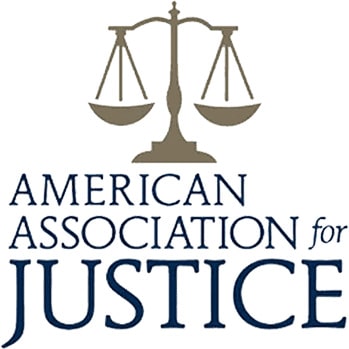Sexual assault in hospitals threatens patient safety and trust. Medical professionals sometimes abuse their position to harm vulnerable patients. This article investigates the scope of the issue, identifies high-risk areas, and outlines preventive measures and legal obligations.
Key Takeaways
- Sexual assault in hospitals represents a significant and widespread issue where patients are exploited due to their vulnerability, resulting in severe psychological and emotional trauma.
- The legal responsibility of hospitals includes protecting patients from sexual abuse, implementing preventive measures, and establishing clear reporting protocols for incidents of misconduct.
- To effectively combat hospital sexual abuse, it is crucial to foster a culture of respect, provide staff training on informed consent, and educate patients about their rights and expected behavior from healthcare providers.
Sexual Assault in Hospitals: Addressing a Critical Health Crisis
Sexual assault within the confines of a hospital is a grotesque abuse of power and trust. Medical professionals, who are supposed to be caregivers, sometimes exploit their positions by sexually assaulting patients. This exploitation can take many forms, from inappropriate touching to outright sexual violence, and many patients have been sexually assaulted.
Patients are often in vulnerable states, incapacitated by medication or physical limitations, making them easy targets for such predators. The trust placed in hospital staff is sacred, and the betrayal of this trust leaves profound psychological and emotional damage. For example, in a tragic case at Jacksonville Memorial Hospital, a doctor noted trauma on a 4-year-old girl but failed to offer a forensic exam or notify an advocate, highlighting how hospitals fail to address systemic issues that can perpetuate abuse in a medical facility.
Hospital sexual abuse is not just a series of isolated incidents but a widespread issue that affects numerous patients across various medical facilities. It is imperative to address this crisis head-on, implement robust preventive measures, and ensure that those who commit such heinous acts are held accountable.
Introduction
Sexual violence in hospitals, especially psychiatric facilities, has been a significant concern for decades. This issue gained attention in the mid-1970s, yet it remains a persistent problem. It’s alarming that the U.S. has lagged in implementing regulatory advancements to combat sexual assault in these settings, compared to other developed nations.
The failure to address this issue adequately has left countless patients at risk. Raising public awareness and advocating for stricter laws and improved protective measures in hospitals is critical. Understanding the scope and impact of hospital sexual abuse enables us to create safer environments for all patients.
Understanding Hospital Sexual Abuse
 Hospital sexual abuse is defined as the exploitation of a medical professional’s position to assault or abuse a patient. This can include a range of actions from inappropriate touching to forced penetration.
Hospital sexual abuse is defined as the exploitation of a medical professional’s position to assault or abuse a patient. This can include a range of actions from inappropriate touching to forced penetration.
The perpetrators often take advantage of the patient’s vulnerable state, which may be due to physical limitations or the debilitating effects of medication.
Patients in hospitals are particularly susceptible to this type of physical abuse. Whether they are under sedation, physically incapacitated, or simply trusting of their caregivers, their vulnerability is a significant factor. Methods of abuse can vary, but they all leave deep psychological and physical scars.
The impact of such abuse is far-reaching. Apart from the immediate physical harm, victims may suffer from long-term psychological trauma, including anxiety, depression, and post-traumatic stress disorder.
Recognizing the signs of abuse and taking swift action to protect patients and hold perpetrators accountable is vital.
Prevalence of Sexual Assault in Medical Facilities
Research indicates that around 5% of women and 2% of men have encountered sexual misconduct by healthcare providers. The prevalence of hospital sexual abuse is alarmingly high, with many cases involving inappropriate touching and other forms of misconduct. Over 3,100 doctors have faced disciplinary consequences for sexual assault since 1999, highlighting the widespread nature of the problem.
In emergency departments, patients often have to repeat their assault stories to different staff members, which complicates their care and adds to their trauma. The high prevalence of sexual abuse histories among female psychiatric patients is particularly concerning. These patients are often already vulnerable due to their mental health conditions, making them easy targets for predatory behavior. When an assault occurs, it further exacerbates their situation.
Addressing these issues directly ensures the safety and well-being of all patients.
Vulnerable Areas Within Hospitals
Psychiatric hospitals and specific wards within general hospitals are particularly vulnerable to sexual abuse. Sexual violence in psychiatric facilities has historically been a persistent issue, often overlooked by both researchers and regulators. Most sexual assaults in these settings are perpetrated by patients against other patients, although staff can also be involved.
Patients in psychiatric hospitals are especially vulnerable due to the debilitating effects of medication and physical incapacity. The physical limitations and side effects of medication further contribute to their vulnerability. These factors create an environment where sexual predators can easily exploit patients.
Profiles of Perpetrators in Hospital Settings
Hospital employees, including nurses, doctors, therapists, and support staff, are the main perpetrators of sexual abuse. Notable cases, such as that of Dr. Robert Hadden, who faced nine counts of sexual assault, highlight the severity of the issue.
Patients trust their healthcare providers, making them particularly vulnerable to abuse. The power dynamics and close proximity interactions in hospital settings create opportunities for sexual predators to exploit patients. Many victims remain silent due to the power imbalances and lack of understanding about appropriate medical care.
Contact us today for your free & confidential case review. Our team will help you get the compensation that you deserve.
Legal Responsibilities of Hospitals
Hospitals have a legal obligation to protect patients from sexual abuse and to report any suspected abuse immediately. Clear reporting policies enable quick and efficient reporting of sexual abuse behaviors. Hospitals are responsible for implementing better vetting processes and training programs to prevent sexual abuse.
Failure to protect patients from sexual abuse can result in shared legal responsibility for the harm done. Hospitals can be held liable under a legal theory of respondent superior, meaning they may be responsible for the actions of their employees. Negligent supervision can result from failure to act on known dangers posed by employees or not having appropriate policies in place.
How Hospitals Can Prevent Sexual Abuse
Systematic and proactive changes in healthcare policies are essential to prevent sexual assault and protect patients. Fostering a culture of respect and understanding among hospital staff is key to preventing sexual assault. Staff training should include informed consent and bystander intervention techniques.
Hospitals must have transparent and accessible reporting procedures to ensure patient complaints are taken seriously. Routine use of chaperones during sensitive examinations is recommended to protect both patients and healthcare professionals from potential accusations of misconduct.
Patient education regarding their rights and expected behavior from healthcare providers is crucial for prevention.
Steps to Take If You Suspect Abuse by a Medical Professional
Suspect hospital sexual abuse? Report the abuser to the appropriate authorities immediately to ensure safety and accountability. Gather evidence related to the abuse, such as any documentation of the incident and witness statements.
Reach out to a sexual abuse attorney right away for legal guidance and to discuss potential compensation.
Role of Hospital Sexual Abuse Attorneys
Hospital sexual abuse attorneys provide legal advice and act as advocates for survivors, helping them navigate the complexities of the legal system. These attorneys assist survivors by gathering relevant evidence and managing the overwhelming details involved in legal matters.
Survivors may seek compensation for various damages in a lawsuit, including medical expenses, lost wages, and emotional distress. Victims may seek help from legal experts who specialize in healthcare abuse cases for further assistance.
Importance of Timely Reporting and Evidence Collection
Immediate reporting of sexual assault increases the chance of gathering crucial evidence. Delaying evidence collection can compromise a legal case, making it difficult to secure a conviction. Documenting any signs of abuse or neglect is crucial to support a future investigation.
Collecting evidence in a timely manner helps establish credibility in the victim’s account. Specialized attorneys can help survivors gather significant evidence and navigate local laws regarding sexual abuse cases.
Support Resources for Survivors
There are numerous support resources available for survivors of hospital sexual abuse. Mausner Group Injury Lawyers ensures victims are supported throughout the legal process, aiding in emotional recovery. Attorneys experienced in sexual abuse cases can advocate for victims’ rights, ensuring their voices are heard in court.
Organizations like After Silence offer online support groups, message boards, and chat rooms for victims and sexual assault survivors of sexual violence. RAINN operates the National Sexual Assault Hotline, connecting survivors to local support services and providing recovery resources.
Frequently Asked Questions
What are the common forms of hospital sexual abuse?
How prevalent is sexual abuse in medical facilities?
What should I do if I suspect sexual abuse by a medical professional?
What legal responsibilities do hospitals have to prevent sexual abuse?
What resources are available for survivors of hospital sexual abuse?
Last updated Wednesday, September 18th, 2024











